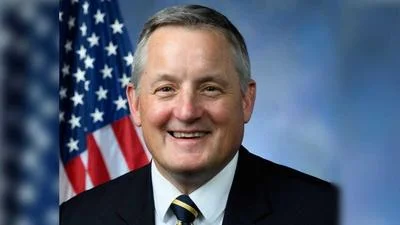Congresswoman Betty McCollum (D-MN), Chair of the Defense Subcommittee, delivered the following remarks at the subcommittee's hearing on Defense Health and Medical Readiness.
This afternoon the Subcommittee will receive testimony on the fiscal year 2023 Defense Health Program and Medical Readiness budget requests.
We welcome five witnesses: Ms. Seileen Mullen, Acting Assistant Secretary of Defense for Health Affairs; Lieutenant General Ronald Place, Director, Defense Health Agency; Lieutenant General Scott Dingle, Surgeon General of the Army; Rear Admiral Bruce Gillingham, Surgeon General of the Navy; and Lieutenant General Robert Miller, Surgeon General of the Air Force and Space Force.
We see some new faces on our distinguished panel – thank you for appearing before us. We look forward to hearing from each of you.
The President’s Budget request for fiscal year 2023 continues the significant transformation of the military health system.
As Appropriators, we are concerned about what some of these reforms will ultimately cost - in terms of dollars; lost national medical capacity; and time.
These capabilities, once lost, cannot grow back overnight.
The military health system is unique in its roles and responsibilities.
This Committee remains focused on ensuring that the reforms do not prescribe a less than optimal military health system for our service members and their families.
In particular, questions remain on planned reductions to military medical manpower and the impact this will have across the military health system.
We understand the difficult balance that the military Departments are trying to come to.
We will want to hear from the Services on planned reductions, and the Defense Health Agency on the plan to mitigate risks to beneficiaries and service members.
The survivability of our service members in future conflicts will depend on how successful our military is in planning, programming and budgeting for the right mix of military medical personnel.
We do not have time to get the solution set wrong.
We must give thoughtful attention to the potential unintended consequences of these reforms - from medical research and military readiness, to beneficiary care.
If the assumptions prove wrong and we have already divested capabilities, it could take a decade and billions of dollars to rebuild.
On medical research – we understand that the Department is preparing a major organizational shift of medical research from the Army to the Defense Health Agency starting in fiscal year 2023.
We will want to hear more about those plans.
We have the Services’ Surgeons General before us to discuss their priorities for medical readiness within each of the military Departments.
In particular, we want to hear how mental health is being prioritized, especially in light of the tragic suicides on the U.S.S. George Washington.
We must better understand what the Services are doing to ensure our service members and their families have the support they need to do the extraordinary jobs we ask of them.
The last few years of the pandemic have been difficult for our medical providers and have strained the military health system.
I want to thank each of you, and the dedicated medical personnel that you serve with, for deploying to Community Vaccination Centers across the country, in support of FEMA and the national response to COVID.
With that, I thank you again for appearing before the Subcommittee today to discuss these issues.
Subcommittees:
Defense (117th Congress)
117th Congress
Original source can be found here.








